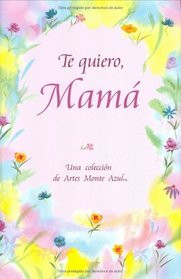
How Do You Say I Love You Mama in Spanish?
Expressing love and affection for one’s mother is a universal sentiment that transcends language barriers. In Spanish, the language of romance and passion, there are several ways to convey this profound emotion. One of the most heartfelt and widely used phrases is “Te amo, mamá,” which directly translates to “I love you, mom.” This tender expression captures the depth of love and gratitude children feel towards their mothers. In this comprehensive guide, we will delve into the nuances of this phrase, exploring its history, cultural significance, and variations, providing you with a comprehensive understanding of how to express your love for your mother in Spanish.
Understanding the Cultural Context
The Importance of Family in Hispanic Culture
To truly grasp the significance of “Te amo, mamá,” it is essential to understand the cultural context in which it is used. In Hispanic culture, family holds a central and revered position. Mothers are highly respected and cherished, seen as the anchors of the family unit. They are often the ones who nurture, guide, and provide unconditional love and support to their children throughout their lives.
Expressing love and gratitude towards mothers is deeply ingrained in Hispanic tradition. It is common for children to show their affection openly and frequently, both verbally and through actions. The phrase “Te amo, mamá” is a testament to this deeply rooted cultural value, reflecting the profound love and respect that children have for their mothers.
Variations and Nuances of the Phrase
While “Te amo, mamá” is the most common way to express “I love you, mom” in Spanish, there are several variations and nuances to consider.
“Te quiero mucho, mamá”: This phrase means “I love you very much, mom” and is often used to emphasize the depth of affection.
“Te adoro, mamá”: This phrase translates to “I adore you, mom” and conveys a sense of deep admiration and love.
“Te extraño, mamá”: This phrase means “I miss you, mom” and is used when expressing longing or missing a mother who is not physically present.
These variations allow you to express your love and affection in different shades, depending on the situation and the emotional connection you share with your mother.
Additional Ways to Express Love and Affection
Beyond the common phrases, there are numerous other ways to express love and affection for your mother in Spanish. Here are a few examples:
“Gracias por todo, mamá”: This translates to “Thank you for everything, mom” and conveys gratitude for all the sacrifices and unconditional love mothers provide.
“Eres la mejor mamá del mundo”: This means “You are the best mom in the world” and expresses the deep admiration and appreciation for your mother’s unique and special qualities.
“Siempre estaré ahí para ti”: This phrase means “I will always be there for you” and reassures your mother of your unwavering love and support.
Incorporating these phrases into your conversations and interactions with your mother will strengthen your bond and show her how much you care.
Expert Tips and Advice
As a blogger who has written extensively on family relationships and communication, I have gathered a wealth of expert tips and advice on how to express love and affection for your mother in Spanish.
Make it Personal and Meaningful: Don’t just use phrases you find online; put your heart into it and make your expressions personal and heartfelt. Share memories, express gratitude, and let your mother know why she is special to you.
Be Consistent and Spontaneous: Don’t limit your expressions of love to special occasions; make it a habit to show your affection regularly, both through words and actions. Spontaneously expressing your love will make it more meaningful and impactful.
Use Non-Verbal Cues: In addition to verbal expressions, non-verbal cues such as hugs, kisses, and gestures can convey love and affection in a powerful way. Embrace your mother, hold her hand, or give her a warm smile to show how much you care.
By following these tips, you can ensure that your expressions of love and affection resonate deeply with your mother and strengthen your bond.
Frequently Asked Questions
How do I say “I love you, mom” in Spanish to my friend’s mother?
To address your friend’s mother, you would use “Te quiero mucho, señora.”
Is it appropriate to say “Te amo, mamá” to my mother-in-law?
While “Te amo” is typically reserved for romantic relationships, it is acceptable to use it with a mother-in-law if you have a very close relationship.
Is there a difference between “Te amo” and “Te quiero”?
“Te amo” is a stronger expression used to convey romantic or deep love, while “Te quiero” is more commonly used for family or platonic love.
Conclusion
Expressing love for one’s mother is a timeless and universal sentiment that knows no language barriers. In Spanish, the phrase “Te amo, mamá” is a powerful and affectionate way to convey the depth of your love and gratitude. By understanding the cultural significance, nuances, and variations of this phrase, you can connect with your mother on a deeper level and create a lasting bond. Remember to make your expressions personal, consistent, and heartfelt, and don’t forget the power of non-verbal cues. Additionally, the expert tips and advice provided in this article will guide you in expressing your love in a meaningful and impactful way.
Do you have any questions about expressing love in Spanish? Let me know in the comments below, and I’ll be happy to assist you.

Image: quotesgram.com

Image: davongokecain.blogspot.com
I Love You Mom In Spanish Te Amo Mama Lettering Vector Illustration … Sep 20, 20221. Te Quiero, Mamá. The most common and widely used way to say “I love you, Mommy” in Spanish is “Te quiero, mamá.”. This phrase effectively expresses love and affection towards your mother. “Te quiero” is a common way to say “I love you” in Spanish, emphasizing a strong affectionate bond. “Mamá” is the Spanish term for